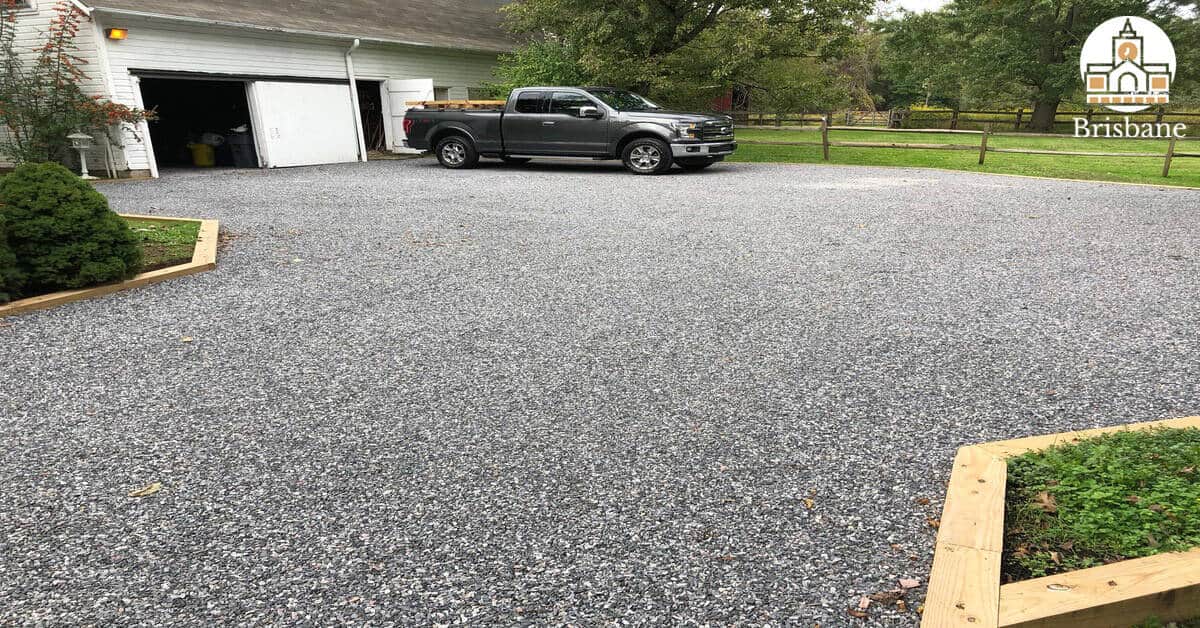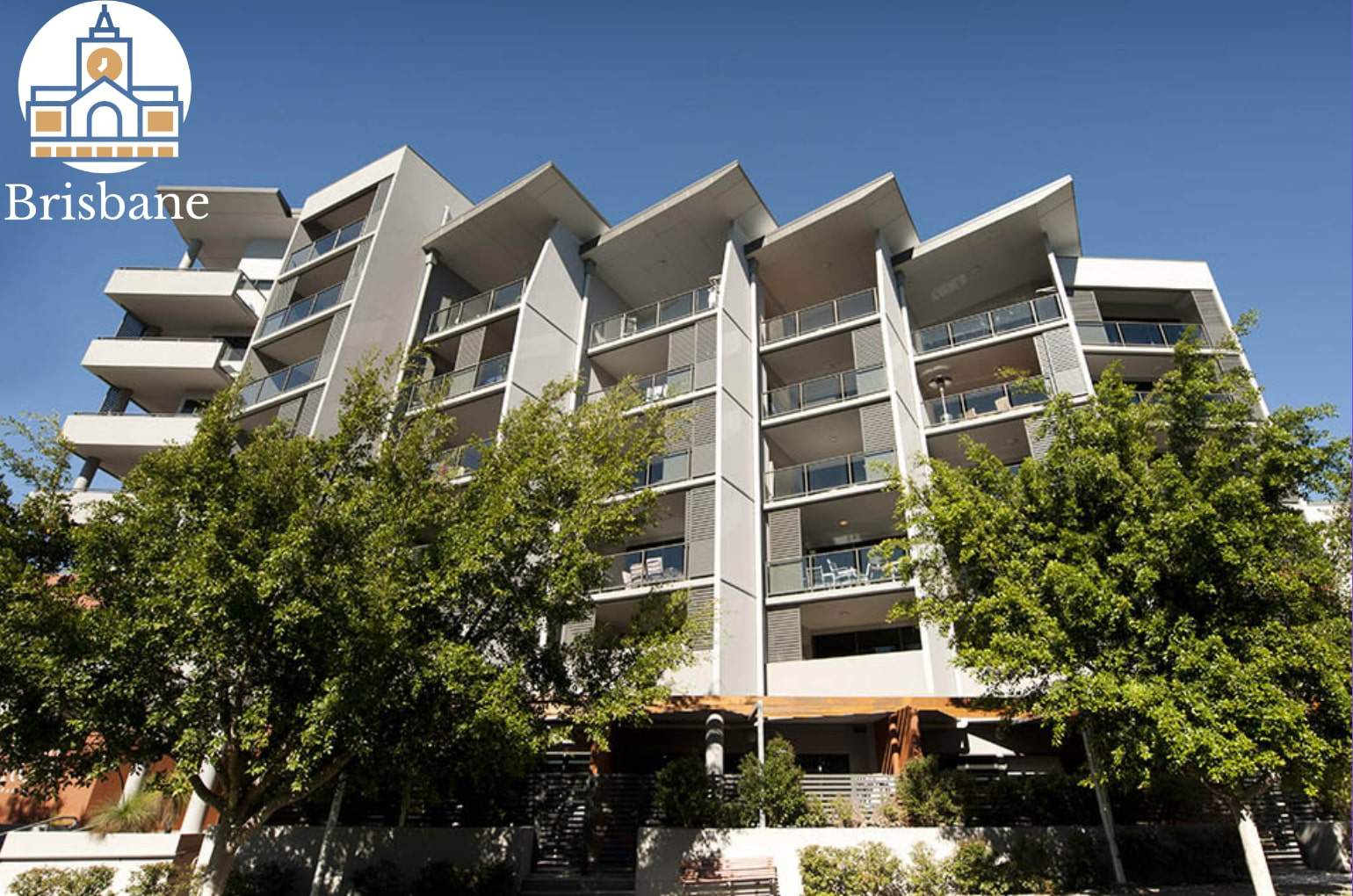Categories > Guides and Tips

Cost of Building a Gravel Driveway in Brisbane
- What is Gravel?
- How Much It Will Cost to Build a Gravel Driveway
- Factors That Can Affect the Cost of Gravel Driveway
- Driveway Size
- Gravel Type Used
- Tools and Labor
- Land Preparation
- Drainage
- Resloping
- New or Replacement Driveway
- Getting Permits
- Soil’s Composition
- Tools and Materials Needed in Creating a Gravel Driveway
- Tools
- Materials
- Various Types of Gravel for Your Driveway
- Aquarium Gravel
- Crushed Stone
- Pea Gravel
- Bank Gravel
- Recycled Asphalt
- River Rock
- Crimson Stone
- Decomposed Granite
- Lava Rock
- Jersey Shore Gravel
- White Marble Chips
- Step-by-step Guide on How to Create a Gravel Driveway
- Choose a Location for Your Driveway
- Secure a Permit
- Outline Your Driveway
- Clear the Area
- Decide on the Gravel Layers
- Calculate the Amount of Gravel Needed for Each Layer
- Level the Driveway’s Surface
- Lay Down a Weed Barrier
- Construct a Gravel Border
- Scatter and Compact the Base Layer
- Install the Middle Layer
- Add the Top Layer
- Clean Out the Area
- Reasons to Install a Gravel Driveway
- Cost-effective
- Easy Installation
- Variety of Colors to Choose From
- Low Maintenance
- Durable
- Easier to Compact
- Better Drainage
- Replenishable
- DIY vs. Hiring a Pro
- Top Gravel Suppliers in Brisbane
- Brisbane Soils and Landscape Supplies
- Redland Soils
- Centenary Landscaping
- North Brisbane Landscape and Garden Centre
- Yellowstone Landscape Supplies
If you’re looking to install a gravel driveway, you may be wondering how much it will cost.
In this guide, we will give you an overview of the costs associated with a gravel driveway. We’ll also provide a step-by-step walkthrough on how to create your own gravel driveway.
But first, let’s find out what exactly is gravel?
What is Gravel?

Technically, natural gravel is defined as loose rock or stone that is larger than sand but smaller than a cobble. Its diameter ranges from 2.5 cm to 6.5 cm (0.1 in to 2.5 in).
Gravel is a common material used for creating driveways. It’s usually a processed product made of rocks, sand, and clay. As compared to plain rocks, gravel compacts better into a stable surface.
How Much It Will Cost to Build a Gravel Driveway
The average cost to install a gravel driveway in Brisbane ranges from $100 to $180 per cubic meter. However, this cost varies depending on a number of factors such as the type of gravel used and land preparation, among others.
The following are the price estimates for installing a gravel driveway based on the type of gravel stone used.
| Type of Gravel | Average Cost |
| Crushed Granite | $100 and $150 per ton |
| Resin | $30 to $50 per square meter |
| Crushed Rock | $50 and $75 per cubic meter |
| Limestone | $50 to $100 per ton |
| Crushed Stone | $50 and $90 per cubic meter |
| Pebblestone | $80 and $150 per cubic meter |
Factors That Can Affect the Cost of Gravel Driveway

Gravel driveways are known for their cost-efficiency as compared to other materials used for driveways. However, there are a number of factors that can impact the average cost of building a gravel driveway such as the following.
1. Driveway Size
How much gravel and other materials you need will depend on the width, length, and depth of the driveway you plan to build. These dimensions of the driveway have a significant impact on the overall cost of the driveway gravel.
2. Gravel Type Used
The cost of building a gravel driveway is also influenced by the type of gravel used. Prices for different gravel stones might vary greatly. For instance, the price of crushed granite differs from the price of cobblestone.
3. Tools and Labor
The labor cost also varies depending on the difficulty of the job and the geographic area. Also included in the labor rates is the equipment needed for building the gravel driveway such as a mechanical compactor.
4. Land Preparation
The cost of the gravel driveway may increase if clearing the area for the installation requires a lot of time and effort. Before applying any gravel rock, the land needs to be leveled and graded, and that can incur additional costs as well.
5. Drainage
Another factor that can impact the cost of the gravel driveway is the installation of a drainage system. To avoid future maintenance issues, the drainage should be put up properly from the start. It will direct away the water from the driveway and the house.
6. Resloping
There’s also a process called resloping which aims to redirect water away from your home’s foundation. This will have an additional but it will reduce the likelihood of erosion around your home by installing metal or wooden edging or bracing around the driveway.
7. New or Replacement Driveway
Whether you are building a new driveway or replacing an old one, this can have an impact on the cost. It might cost less to replace a driveway since the area has already been prepared for construction and some needed materials had already been laid out.
8. Getting Permits
You need to obtain specific permits from the city council before you can begin building your driveway. The majority of localities require homeowners to apply for a permit, though sometimes it differs depending on where you reside.
9. Soil’s Composition
Different soil compositions where you will build your gravel driveway will have different preparations before laying out the gravel rocks. In areas where it is primarily sand and gravel, you may have to spend more to make it solid for a stable driveway foundation.
Tools and Materials Needed in Creating a Gravel Driveway

The following tools and materials are needed in creating a gravel driveway. Prepare these before you begin building your gravel driveway.
Tools
- Wheelbarrow
- Metal rake
- Shovel
- Work gloves
- Mechanical compactor (optional)
- Backhoe (optional)
- Bulldozer (optional)
Materials
- Landscaping stakes
- String tie or twine
- Weed barrier
- Base layer of rock (1 to 3 inches in diameter)
- Middle layer of rock (2 to 3 inches in diameter)
- Top layer of rock (⅜” to 2 inches in diameter)
Various Types of Gravel for Your Driveway
If you opt for gravel material for your driveway, you have a lot of options to choose from. Whether you want a traditional look or something modern, you can find one that will match your home. Here are the different types of gravel that can be used for driveways.
1. Aquarium Gravel

Because it’s smooth and available in a variety of colors, aquarium gravel is a popular option for driveways. It can function as a natural filtering medium to help remove impurities. In addition, it is reasonably priced compared to other kinds of gravel.
2. Crushed Stone

Another type of gravel rock that can be used for driveways is crushed stone. It’s made from larger rocks that have been crushed down into smaller pieces.
Crushed stone can be used to make a decorative surface and is available in a variety of colors. However, it’s a little more expensive than other kinds of gravel.
3. Pea Gravel

Pea gravel is widely used in landscaping projects because it provides adequate drainage and is easy to walk on. This type of gravel can also be for driveways.
These small and rounded stones are available in various colors. It usually has a diameter of 3/8 inches, hence the name “pea gravel.” Pea gravel is smaller compared to other types of gravel.
4. Bank Gravel

Bank gravel is made up of pea gravel and crushed stones combined together. Thus, it can be considered hybrid gravel due to its mixture of two or more different types of gravel. Typically, roads and driveways are constructed with this material.
5. Recycled Asphalt

This is an eco-friendly option since it’s made from recycled materials. Instead of using traditional asphalt, recycled asphalt can be a great alternative with its advantages such as cost efficiency.
6. River Rock

River rock is a type of driveway gravel that features a smooth and rounded surface. Although it’s more expensive than other varieties of gravel, it is durable and long-lasting. It looks natural and can elevate the style of your home with its eye-catching rocks.
There are various finishes of gravel rock, from a dry appearance to a smooth and polished look. This kind of gravel material is typically stacked with other kinds of stone and should not be used as a base layer.
7. Crimson Stone

Crimson stone is a warm and sunny type of gravel that has a lot of colors including red, gray, black, and orange. For driveways, the one that’s used frequently is pink quartz which is a type of red rock.
8. Decomposed Granite

Decomposed granite is a kind of gravel made from granite that has been crushed down into small pieces. It can be used to make a decorative surface and is available in a variety of colors.
It’s very absorbent, easy to maintain, and eco-friendly. Because it’s frequently a by-product of other industrial or commercial processes, it’s quite inexpensive. Decomposed granite is a good option if you want to prevent driveway flooding.
9. Lava Rock

Lava rock is made from cooled lava. It’s available in red, black, gray, and brown colors. Because it’s aesthetically pleasing and can add interest to your yard, it’s frequently used in landscaping.
Its distinctively porous texture allows water to pass through it like a sponge. Moreover, it’s lightweight, making it easy to transport and install. This gravel material is an eco-friendly alternative to asphalt or concrete.
10. Jersey Shore Gravel

Jersey shore gravel resembles sand and is made of yellow, tan, white, gold, and brownstones. Just like pea gravel, it requires borders or stabilizing pavers to keep from spreading. It’s used for more aesthetic and edging purposes than for functional ones.
11. White Marble Chips

White marble chips are another type of gravel material made from marble that has been crushed into tiny bits. This material is stain-resistant and relatively easy to maintain. It can create a sparkling effect, making your driveway look clean and sophisticated.
Step-by-step Guide on How to Create a Gravel Driveway
Unlike other materials used for driveways, building a gravel driveway can be achieved by any motivated DIYer. Here are the steps on how to create a long-lasting and aesthetically-pleasing gravel driveway.
1. Choose a Location for Your Driveway

The first step in creating your own gravel driveway is choosing a location on your property.You must also determine the driveway’s length and shape, and whether or not you want other features such as a parking area.
When deciding on the location, take into account how the driveway drains. Rainwater should run off the sides, dispersing away from your house. If there’s a steep slope on your driveway, you can also install a drainage system like a French drain.
2. Secure a Permit

In Brisbane, you might need to obtain a permit before creating a driveway. There are certain technical standards that the city council requires before a driveway permit can be approved.
Before beginning the project, find out what type of permits you need as well as the total cost involved. You can check the requirements for driveways in Brisbane at https://www.brisbane.qld.gov.au/.
3. Outline Your Driveway

It’s a good idea to outline your gravel driveway once you have a layout in mind to make sure its dimensions fit in with the available area. To indicate the length of the driveway, place landscaping stakes or sticks every eight to ten feet.
To indicate the width of your driveway, place the second set of stakes at least 10 to 12 feet across from the first set. To create the driveway’s outline, tie string or twine across the pegs.
4. Clear the Area

To make way for gravel, clear the outlined area by removing grass, topsoil, shrubs, or any vegetation. For each layer of rock, it’s recommended that you dig four to six inches of soil.
For this step, you can either use a backhoe or shovel, or you can also hire a helper to assist you. Take note that clearing the area can be labor-intensive. So, hiring a pro for the preliminary work is a good option although it will incur certain costs.
5. Decide on the Gravel Layers

Although a driveway with only two layers of rock is possible, three rock layers provide the maximum stability. Crushed stone, limestone, or concrete with irregular shapes and a diameter of one to three inches should be used as the foundation.
On the other hand, the middle layer often consists of two to three inches of stones. Pea gravel, crushed stone, or limestone with a diameter of 3/8 to 2 inches can be used as the top layer.
6. Calculate the Amount of Gravel Needed for Each Layer

Now, you need to determine how much gravel you’ll need for each layer of your driveway. So, get a measuring tape and a calculator, and follow the steps below to find out how much gravel you need to buy.
- Measure the length and width of your driveway.
- Calculate the square footage by multiplying the length and the width.
- Decide on the depth of each layer of gravel for your driveway. Each layer of rock typically ranges from 2 to 4 inches in depth.
- Lastly, use the formula below to determine how much gravel is needed.

For example, if you have a 400-square-foot driveway with a depth of 2 inches, then, you would need 66.67 cubic yards of gravel (200 x 2 / 12 = 66.67).
7. Level the Driveway’s Surface

After removing the topsoil but before installing any rock layer, level the driveway’s surface. You can use a backhoe, metal rake, mechanical compactor, or any other similar equipment for this step.
It’s important to level the surface in order to avoid water from collecting on the driveway. However, try to elevate the center a little bit by 2% to 5% to promote water drainage.
8. Lay Down a Weed Barrier

Laying down a fabric weed barrier helps to prevent grass and weeds from growing through your driveway. This will also give your vehicles a cushion layer of support that will shield the tires from potential damage that can be caused by any irregular surfaces.
Cover the driveway and aim to create a flat layer without any areas bunching up. You should try to lay the weed barrier as soon as the soil surface has been leveled and compacted.
9. Construct a Gravel Border

Before placing any rock layer, construct a gravel border first. Some common options for borders are bricks, landscaping stones, and wood, which are lined on the edges of your driveway. Meanwhile, you can move on to the next step if you are not adding a border.
10. Scatter and Compact the Base Layer

Spread a layer of base rock over the entire length of your driveway using a wheelbarrow. To uniformly distribute the rocks throughout the width of your driveway, use a shovel or hard metal rake.
Compact the boulders to provide a sturdy base for your driveway using a bulldozer roller, heavy truck, or motorized compactor. Remember that this step might involve operating heavy machinery, and you’ll need professional help to get the job done.
11. Install the Middle Layer

In the same manner as your base layer, spread and compact your middle layer of rock. With a shovel and rake, clean out the driveway’s perimeter. Skip this step if your driveway only has two layers.
12. Add the Top Layer

To remove any lumps or divots, spread the top layer of gravel over your driveway and smooth it out. To ensure efficient rainwater drainage, make sure to grade the sides slightly higher than the middle.
13. Clean Out the Area

Before you’ll finally use your gravel driveway, clean out the area first. Remove the stakes and tie strings, then tidy up your tools and other materials.
Reasons to Install a Gravel Driveway

Given its several advantages, gravel is generally a popular surface material used in driveways. The following are some reasons why you should install a gravel driveway.
1. Cost-effective
Gravel is typically the most affordable driveway material available. That’s why longer and wider driveways are typically finished in gravel. Compared to other materials such as paver or concrete, the price per square meter of gravel is significantly lower.
2. Easy Installation
Gravel is popular among many homeowners because it’s easy to install. Spread the stones out on the driveway area, then use a broom or leaf blower to rake them out until they are evenly distributed across the surface.
A gravel driveway may be installed in less than a day, and you can use it right away because there is no waiting period required for it to be set. This will save you time and effort without leaving you with unsightly results.
3. Variety of Colors to Choose From
Another reason to choose gravel is the several color options available. Depending on the look you want to achieve, you can choose from brown, grey, or even black stones. With gravel, you can easily change the material to a different color later on.
4. Low Maintenance
Driveways made of gravel require very little upkeep. The stones last longer, so you won’t need to resurface them as frequently as you would with concrete or asphalt driveways. With this, you can save money on maintenance down the way.
5. Durable
Gravel driveways are known for their durability. They can withstand heavy usage and adverse weather conditions including rain, wind, and icy temperatures that would eventually wear down their surface over time.
6. Easier to Compact
Gravel is made up of tiny stones and as a result, they compact more easily over time. This also gives you a pretty level surface. Moreover, it can save you money as you won’t have to resurface it as frequently.
7. Better Drainage
Gravel can be a fantastic choice for your driveway since it provides better drainage than other materials like concrete and asphalt. As the tiny stones allow water to flow between them and drain off readily, it prevents rainwater from collecting on the surface.
8. Replenishable
With gravel, you can easily replenish more stones on your driveway when necessary. That makes it simple to keep up the appearance of your driveway without exerting too much effort.
DIY vs. Hiring a Pro
Any DIYer can build a gravel driveway with some heavy lifting, time, and knowledge. However, this project may involve renting heavy-duty equipment and can be labor-intensive.
On the other hand, any errors made during the installation process can be difficult and expensive to fix. Think about hiring a nearby driveway paving contractor if you want to make sure the task is completed more quickly and precisely.
Top Gravel Suppliers in Brisbane
To get the best results for your driveway, consider what gravel material you will be using. Listed below are the top gravel suppliers in Brisbane. Just contact them for consultation and quotation.
1. Brisbane Soils and Landscape Supplies

Brisbane Soils and Landscape Supplies is dedicated to providing affordable and high-quality soils, sand, and gravel. They have a variety of gravels to choose from such as drainage gravel, decorative gravel, river pebbles, and blue metal gravel.
| WEBSITE: | https://brisbanesoils.com.au/ |
| ADDRESS: | 557 Mount Cotton Rd, Sheldon QLD 4157, Australia |
| CONTACT INFO: | +61 408 292 951, [email protected] |
| OPERATING HOURS: | Monday – Friday: 7AM-5PM, Saturday: 7AM – 12PM |
2. Redland Soils

At Redland Soil, Sand & Gravel, they aim to help their clients have affordable and easy landscaping and building projects. They offer varying sizes of drainage gravel, blue rock, and natural river rock.
| WEBSITE: | https://www.redlandsoils.com/ |
| ADDRESS: | Capalaba, QLD 4157, Australia |
| CONTACT INFO: | +61 408 195 952, [email protected] |
| OPERATING HOURS: | Monday – Friday: 7AM-4PM |
3. Centenary Landscaping

Centenary Landscape has been in the business for more than 30 years. Their guiding principles have always been service, quality, and reliability. They also deliver gravel supplies throughout the Brisbane area.
| WEBSITE: | https://centenarylandscaping.com.au/ |
| ADDRESS: | 26 Sumners Rd, Darra QLD 4076, Australia |
| CONTACT INFO: | +61 7 3373 4999 |
| OPERATING HOURS: | Monday – Friday: 6AM-5PM, Saturday & Sunday: 7:30 AM–3:30 PM |
4. North Brisbane Landscape and Garden Centre

North Brisbane Landscape and Garden Centre has 30 years of landscaping experience, supplying both residential and commercial projects. They provide a wide variety of products, such as soils, mulch, sands, base materials, and gravel.
| WEBSITE: | https://northbrisbanelandscapes.com.au/ |
| ADDRESS: | 220 Zillmere Rd, Boondall QLD 4034, Australia |
| CONTACT INFO: | +61 7 3865 2040, [email protected] |
| OPERATING HOURS: | Monday – Friday: 7AM-5PM, Saturday: 7AM-4PM, Sunday: 8AM–2PM |
5. Yellowstone Landscape Supplies

Yellowstone Landscape Supplies got everything you need for your next backyard project, including driveways. They have a wide variety of materials, including mulch, cement, soil, rocks, sand, and gravel.
| WEBSITE: | https://yellowstonelandscape.com.au/ |
| ADDRESS: | 14 Trafalgar Dr, Morayfield QLD 4506, Australia |
| CONTACT INFO: | +61 7 5498 7000, [email protected] |
| OPERATING HOURS: | Monday – Friday: 6AM-5PM, Saturday: 7AM-3PM, Sunday: 7AM–2PM |
______________________________________________________________________
Gravel is one of the most popular driveway materials due to its affordability and easy installation. In this article, we have covered everything you need to know about the cost of a gravel driveway to help you decide whether or not this is the best option for you.





